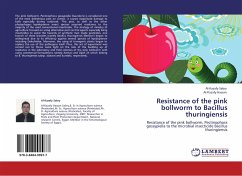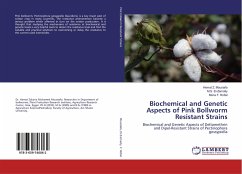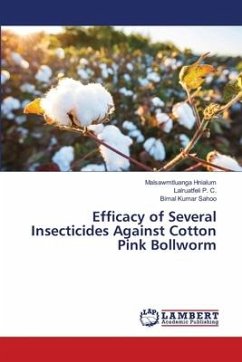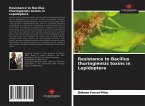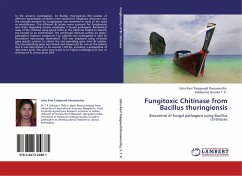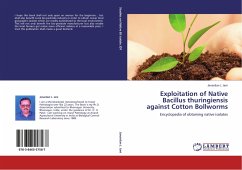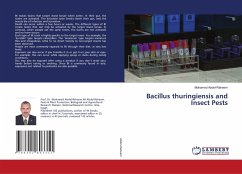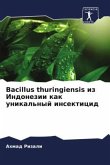The pink bollworm, Pectinophora gossypiella (Saunders) is considered one of the most deleterious pest on cotton, it causes magnitude damage to bolls especially during outbreak. This pest, as well as the other phytophagus lepidopteron insect species acquired resistance to the majority of the used conventional insecticides. The strategy of ministry of agriculture focused on using alternative pest control agents especially living insecticides to avoid the hazards of synthetic man made pesticides, one branch of these biocides namely Bacillus thuringiensis (Berliner) began to widespread due to its efficiency against several species of lepidopteron including Gelechiidae. Moreover, the using of transgenic plants began to replace the use of the pathogens itself. Thus, this set of experiment was carried out to throw some light on the rate of the building up of resistance in the laboratory and field colonies of the pink bollworm with using commercial formulations namely Xentari and Dipel 2X which belong to B. thuringiensis subsp. aizawai and kurstaki, respectively.
Bitte wählen Sie Ihr Anliegen aus.
Rechnungen
Retourenschein anfordern
Bestellstatus
Storno

